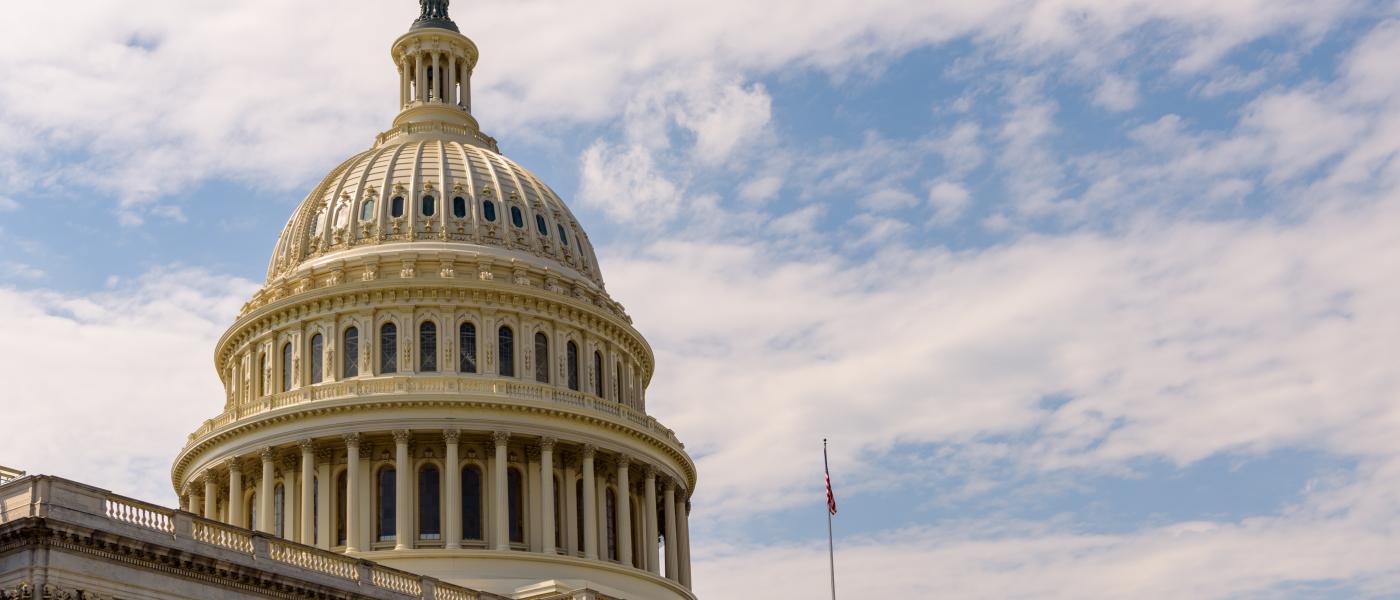The United States Congress passed the William M. Thornberry Defense Authorization Act for Fiscal Year 2021, an annual bill (generally known as the NDAA) that designates funding for the Department of Defense, on a bipartisan basis. Priorities outlined in the NDAA will drive important elements of United States defense policy for the coming year. Importantly, the bill includes provisions to confront the threat of foreign interference in U.S. democracy and offset recent autocratic advances in the emerging asymmetric competition. In particular, it takes encouraging steps to secure the United States from the threat of malign finance, improve cybersecurity infrastructure on both the federal and state levels, and emphasize research and development in the field of artificial intelligence.
Defending Against Covert Foreign Money
Lawmakers put countering malign finance front and center this year by essentially banning shell companies and requiring disclosure of beneficial ownership. The measure, which has been called “the single most important change Congress could make to better protect our financial system from abuse,” would mean that shell companies—companies with no office or employees that exist to conceal the true (“beneficial”) ownership of other companies they legally own—must disclose who ultimately owns them. Experts, including ASD Malign Finance Fellow Josh Rudolph and Research Assistant Tom Morley, have noted that shell companies are a major tool authoritarians use to hide money used to covertly influence democracy here in the United States, and the work done by a bipartisan majority in Congress will do much to take that tool away from authoritarian adversaries.
The NDAA has also taken firm steps to counter money laundering by bringing dealers of antiquities under the the AML obligations of the Banking Secrecy Act, and requiring an assessment of the role of art dealers in money laundering. Antiquities are high value purchases that are a convenient way to launder dirty money, while providing prestige to the money launderer. While there are further sectors that should be regulated more closely, such as art and real estate, the antiquities industry is a necessary first step towards more sweeping AML supervision.
The incoming Biden administration has made clear that fighting global illicit finance is among its top priorities, and the NDAA has set a clear agenda to assist them by requiring the Treasury to issue a report within the year detailing a strategy to counter China’s illicit finance and to further study how authoritarian regimes misuse the U.S. financial system towards their own nefarious ends. Aggressive movement by both the executive and legislative branches, in the incoming administration’s priorities and in this NDAA respectively, will put the United States back at the forefront of countering kleptocracy both at home and abroad.
Recognition of Emerging Threats
The bill also takes steps to modernize the U.S. approach to key fields of competition with authoritarian states by promoting a more assertive and values-based posture on cyber issues, artificial intelligence, quantum computing, and telecommunications, which reflects a greater awareness of the changing threat environment and key vectors for interference by authoritarian states.
Among the most prominent of these changes are the reforms advocated by the Cyberspace Solarium Commission. These include the creation of a national cyber director role within the White House that requires Senate confirmation and replaces the cyber coordinator position that was eliminated by the Trump administration. Senator Angus King (I-Maine) and others lauded this as a crowning achievement of the bill; although, some worry that the position gives the director too little authority to demand changes in practice from agencies. The bill also gives subpoena authority as well as a number of other investigative tools to the director of the Cybersecurity and Infrastructure Agency, empowering that office to better investigate threats on federal networks and request data from Internet service providers and other private sector stakeholders. Changes to cyber policy were not just defensive; among many other provisions enhancing cyber-readiness, Title XVII codifies a “hunt forward” approach (in the past this has been cast variously as “persistent engagement” or “defend forward”) for CYBERCOM of confronting threats before they reach U.S. networks and imposing costs abroad for interference in the United States.
Some of these changes represent key reforms to improve election security—an issue on which it has proved difficult to achieve bipartisan consensus. Experts on election security, including ASD Elections Integrity Fellow David Levine, have called for greater federal support to state and local authorities responsible for conducting and securing elections. Section 1717 of this bill amends the Homeland Security Act of 2020 to establish cyber security state coordinators for each state based at DHS.
Though the cyber realm garners the lion’s share of the headlines, experts including ASD Emerging Technologies Fellow Lindsay Gorman have pushed for greater attention to be paid to the vulnerabilities presented by other emerging technologies. Artificial intelligence will be an essential technology for both the economies and militaries of the future and represents a field of science in which China has sought to develop a significant edge. Control of 5G wireless supply chains, too, represents a point of strategic leverage that could be used to undermine U.S. national security or undermine liberal institutions.
This bill reflects a greater acknowledgement of these threats, as well as many of the dynamics laid out by the ASD’s Offset Strategy Task Force, most notably that the United States finds itself in a multidimensional competition of systems that demands conscious strategies for every domain. Title II, for instance, is dedicated entirely to artificial intelligence, with the Joint Artificial Intelligence Center now elevated to report the deputy secretary of defense. New guidance instructs DoD to investigate whether current plans for the development and acquisition of AI technology take into appropriate account the ethical implications of designing and deploying such platforms—a key question since authoritarian states are unconstrained by such questions in their own research and development. New sections also mandate greater study into the ways in which quantum computing threatens the future of national security, as well as ways to mitigate the threat that compromised 5G wireless systems could pose to U.S. forces based in allied nations.
Bipartisan Action on Russia and China
This year’s NDAA reflects a bipartisan commitment to countering Russia and China’s interference through a number of new and continuing provisions, including further sanctions on buyers of Russian defense systems and companies participating in the construction of the Nordstream and Turkstream pipelines, as well as new reporting requirements on interference tactics by foreign adversaries.
Congress has reinforced its commitment to counter Russia’s economic coercion through restating and reinforcing its sanctions on the Nordstream and Turkstream pipelines, both of which not only perpetuate European reliance on Russian energy sources but also arez purposefully routed around Ukraine in an attempt to isolate the fragile democracy, which has been continually under assault from the Kremlin since the Revolution of Dignity in 2014. Congress has also reaffirmed its commitment to preventing the purchase of Russian weapons systems such as the S-400 Triumf missile system in countries that are part of the United States’ F-35 program, and on December 14 the Treasury announced new sanctions against members of the Turkish government for purchasing such systems.
Congress has also emphasized the importance of monitoring China’s activities in the United States and abroad through new reporting requirements. Among them are required reports on the success of the National Cyber Strategy against China’s attempts at IP theft and other industrial espionage, operations by the Communist Party’s United Front Work Department and its affiliated organizations in the United States, and operations of Chinese military state-owned enterprises (SOEs) in the United States. Russia’s activities will also be monitored, with a report on Russian tactics such as cyberwarfare, information warfare, malign finance, and coercive economic tools required. These tactics mirror those found in our Authoritarian Toolkit.
Moving Forward
Congress has taken important and exciting measures towards addressing authoritarian interference this year. The NDAA provisions that ban shell companies and unveil beneficial owners is a monumental move towards safeguarding our financial system from foreign adversaries. Building on the success of this year’s Cyberspace Solarium Report, Congress has also made important advances in augmenting the United States’ cybersecurity infrastructure and investing in the emerging technologies, like Artificial Intelligence, that will keep the United States competitive in the future. There is, as ever, much to be done: the reports the NDAA mandates on China and Russia’s activities are an excellent first step, and we look forward to future Congresses using these reports to take further, more concrete action to safeguard democracies from the threats these authoritarian adversaries pose.
The views expressed in GMF publications and commentary are the views of the author alone.






